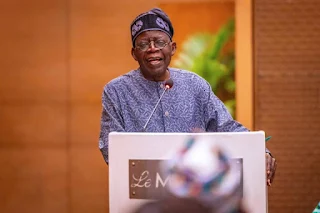In just two years, Bola Tinubu’s administration has undone one of the most important budget reforms introduced by the 9th National Assembly under former president Muhammadu Buhari, FIJ has observed.
On Tuesday, the National Assembly approved the request to extend the implementation of the 2024 budget till the end of 2025. The Senate argued that the extension was necessary to ensure that all the projects captured in the budget get implemented.
This extension comes despite promises made by the president to ensure diligent budget implementation and fiscal discipline.
When signing the 2024 budget into law, President Tinubu pledged to ensure that all Ministries, Departments and Agencies (MDAs) would submit monthly performance reports and that spending would be tracked closely.
Tinubu also named himself chair of the newly formed Economic Coordination Council, tasked with monitoring budget execution.
“Implementation of the budget would be efficiently pursued and vigorously monitored… All MDAs have been directed to take responsibility and provide monthly Budget Performance Reports,” the president said.
PROGRESS UNDER THE 9TH ASSEMBLY
In 2019, the National Assembly made the move to regulate budget implementation time. Both the Senate, led by Ahmad Lawan, and the House, led by Femi Gbajabiamila, enforced strict deadlines that required the president to present the budget by October 31 and ensured that appropriation was completed by December.
This change made it possible to return to a January–December fiscal cycle starting in 2020. For instance, the 2020 budget was presented on October 29, passed on December 17 and signed into law the next day.
TINUBU’S 2023 SUPPLEMENTARY BUDGET OPENED THE DOOR TO IMPLEMENTATION DISRUPTION
Tinubu’s 2023 supplementary budget opened the door to the disruption of the statutorily recognised budget cycle. In November 2023, he introduced a N2.17 trillion supplementary budget.
According to the Presidency, the new spending was meant to cover emergency needs like security, road infrastructure and palliatives to ease the impact of fuel subsidy removal.
While supplementary budgets are not unusual, this one was approved with an extended implementation window running until December 2024.
Tinubu requested an extension approval for the 2023 supplementary budget twice, first in March and also in June 2024. The explanation at the time was similar: the budget needed to be extended to accommodate capital projects that had not been implemented.
“This Bill, therefore, intends to further extend the implementation period of the Acts to 31st December, 2024, given the strategic importance of some key projects nearing completion and to allow for continued implementation for the maximum benefit of the country,” Opeyemi Bamidele, the senate majority leader, said in June 2024.
“Undoubtedly, this would go a long way to avoid the compounding problems of abandoned projects. Hence, the need for the enactment of this proposed legislation to extend the implementation.”
SPILL OVER INTO 2025
This continued into the 2024 budget process. The Fiscal Responsibility Act requires the president to present the budget to the National Assembly by October 31 or early November.
“The Executive Arm of the Federal Government shall, at least 30 days before the deadline for the submission of its budget proposals, place, at the disposal of the National Assembly, the revenue estimates for the following year, including the net current revenue and the respective memorandum items.” the act says.
However, Tinubu presented the 2024 budget at the end of November 2023, just weeks before the new year began.
At the presentation, the Minister of Finance acknowledged the delay and explained that it was necessary to align the new government’s priorities with spending targets. “We needed time to align our priorities,” she said, “but we recognise the importance of timely submissions going forward.”
2024 BUDGET EXTENDED DEEP INTO 2025
On Tuesday, the National Assembly granted another extension. This time, it shifted the deadline for implementing the 2024 capital budget from June 30 to December 31.
Solomon Adeola, Chairman of the Senate Committee on Appropriations, said the move would ensure that already released funds would not go to waste and ongoing projects could be completed.
As a result of that decision, Nigeria now finds itself operating under two active budgets at once: the 2024 capital budget, which will now run until the end of 2025, and the 2025 budget which has been in effect since January.
This multi-year overlap complicates financial reporting and weakens legislative control over public expenditure.
The setbacks from 2023 rippled into 2024 and continued into 2025. The president didn’t present the 2025 budget to a joint session of the Senate and House of Representatives until December. He eventually signed the Appropriation Bill, which was meant to run from January to December, into law in February.
TINUBU’S PERFORMANCE CLAIMS CONTRADICT OFFICIAL FIGURES
Despite the timeline lapses, Tinubu has continued to defend his administration’s management of the budget. For instance, while presenting the 2025 budget on December 18, he reported that N14.55 trillion in revenue had been generated — amounting to 75% of the target.
He also said that N21.60 trillion expenditure, which is 85% of the budget target, had been achieved. However, previous requests and subsequent declarations put these figures into doubt.
In July 2024, the presidency requested that N6.2 trillion be added to the 2024 budget to cater to the implementation of the N70,000 minimum wage. That effectively adjusted the expenditure sum to N35.5 trillion.
A N21.60 trillion expenditure puts the performance at about 59% instead of the 85% that the president declared. Also, publicly available records makes the declaration more obscure.
According to the Open Treasury Portal, only 19.56% of the capital budget had been spent by December 2024.
In December, Godswill Akpabio, the senate president, put capital budget implementation at just 50%, with recurrent expenditure at 48%.


Post a Comment